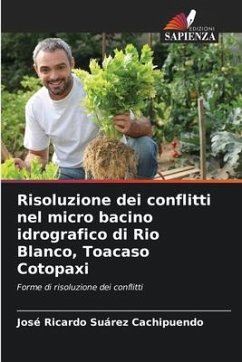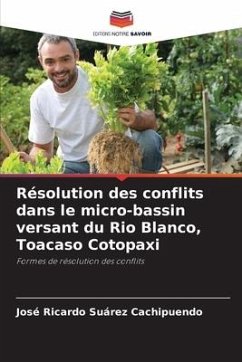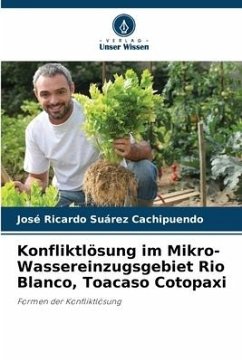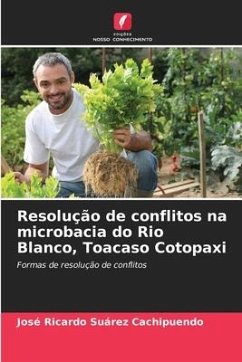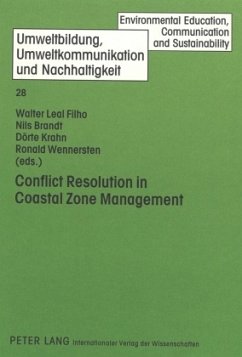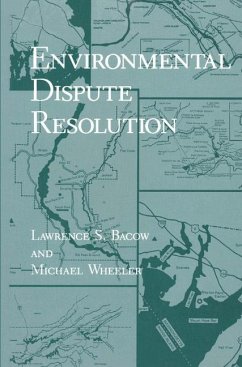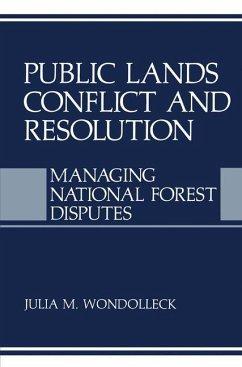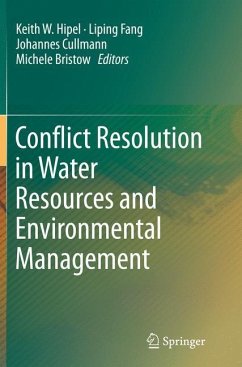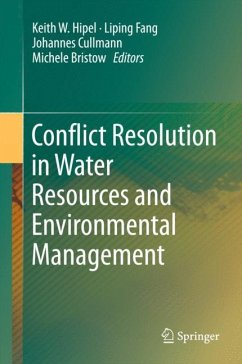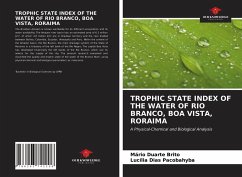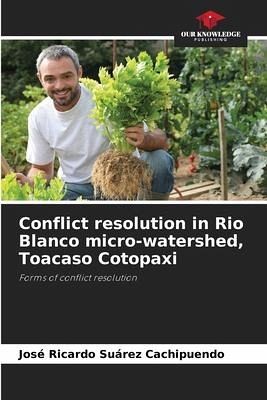
Conflict resolution in Rio Blanco micro-watershed, Toacaso Cotopaxi
Forms of conflict resolution
Versandkostenfrei!
Versandfertig in 6-10 Tagen
36,99 €
inkl. MwSt.

PAYBACK Punkte
18 °P sammeln!
This work has been chosen because the study area is representative for Cotopaxi, in terms of its ecology, form of organisation and levels of water conflict. In this sense, it is important because, to the extent that we can explain the form of conflict resolution in this area, we can generate initiatives for a less traumatic and more lasting solution to the provincial problem. The direct beneficiaries of this work will be two fundamental organisations within this micro-basin, such as the Union of Indigenous and Peasant Organisations of North Cotopaxi "UNOCANC" and the partners of the Toacaso Ce...
This work has been chosen because the study area is representative for Cotopaxi, in terms of its ecology, form of organisation and levels of water conflict. In this sense, it is important because, to the extent that we can explain the form of conflict resolution in this area, we can generate initiatives for a less traumatic and more lasting solution to the provincial problem. The direct beneficiaries of this work will be two fundamental organisations within this micro-basin, such as the Union of Indigenous and Peasant Organisations of North Cotopaxi "UNOCANC" and the partners of the Toacaso Central Canal, but as these organisations are a fundamental part of provincial organisations such as the MICC and FEDURIC, which are highly important in the management of water resources and ecosystems, we understand that this will facilitate the negotiation processes.



